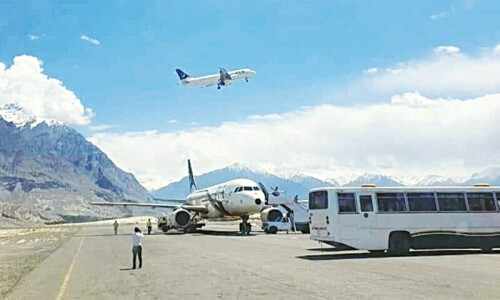THE AUKUS military pact signed last week between Australia, the UK and the US has created major fissures between apparent allies within the Western bloc, while also drawing censure from China, whom the pact is supposed to target. The new grouping came to light when it was revealed that Australia would receive nuclear-powered submarines from the US and UK. However, this has come at the cost of a French-Australian deal through which Paris was supposed to provide Canberra with conventional subs.
France, which is a Nato partner of the US and UK, has accused its allies of “duplicity” in scuttling its multibillion-dollar deal with Australia, with the French foreign minister saying that the relationship was going through a “serious crisis”. Moreover, it is quite clear that the nuclear submarines are directed at China; there is no reason for Australia to make the purchase, as it faces no great defence perils from the Pacific microstates that surround it.
Read: France wins EU backing in submarine row with US
The AUKUS controversy illustrates that even the closest of allies can become estranged when commercial concerns are at stake. After all, the French defence industry would have gained a profitable deal if the Australians had gone ahead with it. Obviously, the UK and US had other ideas, as their own military industrial complex will surely benefit from manufacturing subs for Australia. But the more troubling reality emerging from this controversy is the deployment of nuclear vessels in the Pacific. It appears that in their desire to hem in China, the Western bloc is prepared to open up a new front in the Indo-Pacific.
While US President Joe Biden had just a few weeks ago announced that Washington’s days of foreign nation-building projects were over, clearly the Americans have not lost their appetite for global military adventurism. China has accused the AUKUS powers of having a “Cold War mentality” while North Korea has said the deal for nuclear subs could spark a regional arms race. Malaysia has also said the deal serves as a “catalyst for a nuclear arms race”. Unfortunately, after unsuccessful military adventures in the Middle East and Central Asia, it appears the Western bloc is looking to test the waters in East Asia and the Pacific Rim, perhaps to take forward Barack Obama’s ‘Pivot to Asia’ policy. Instead of flexing its military muscle, the Western bloc needs to engage China at the negotiating table — for once sparked, an arms race will be difficult to contain.
Published in Dawn, September 23rd, 2021















































